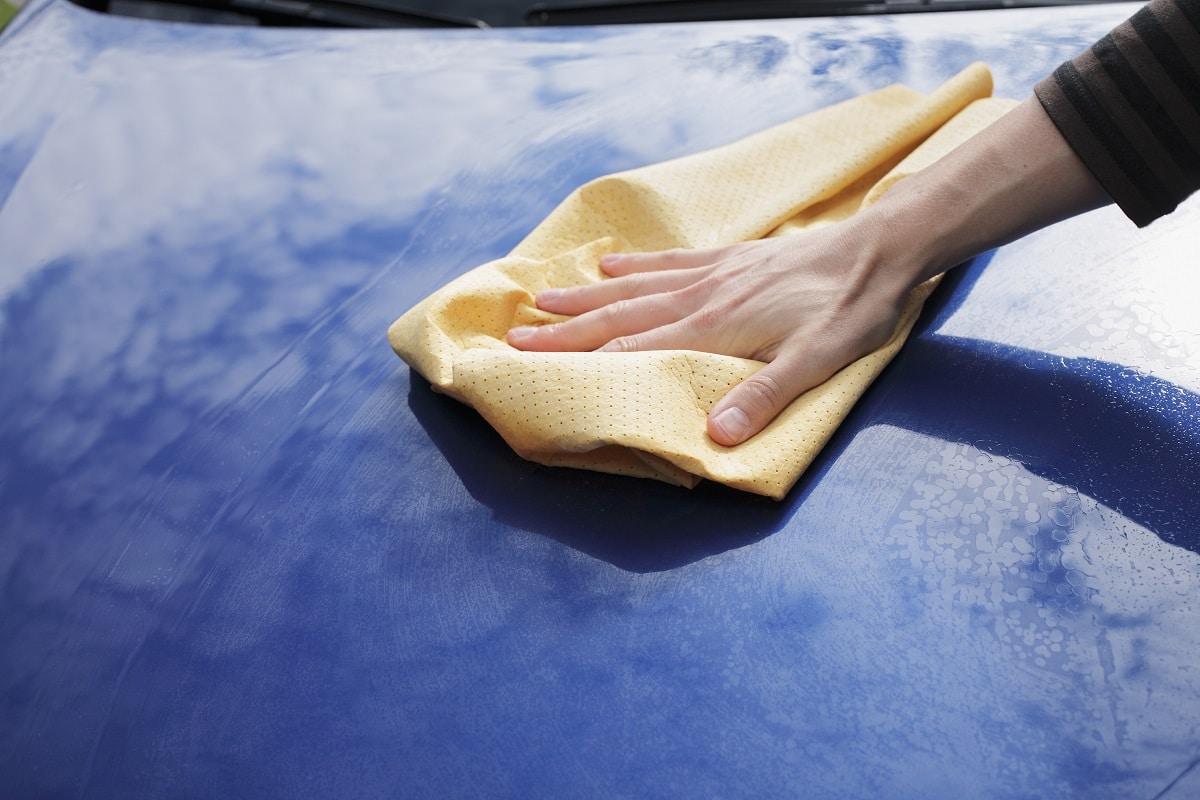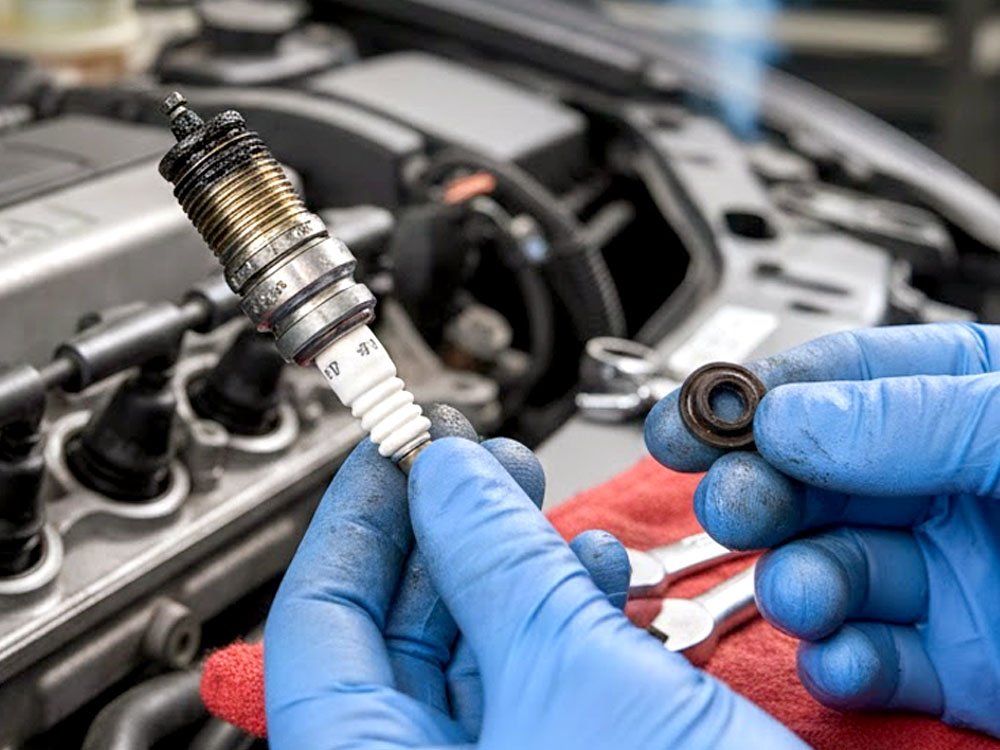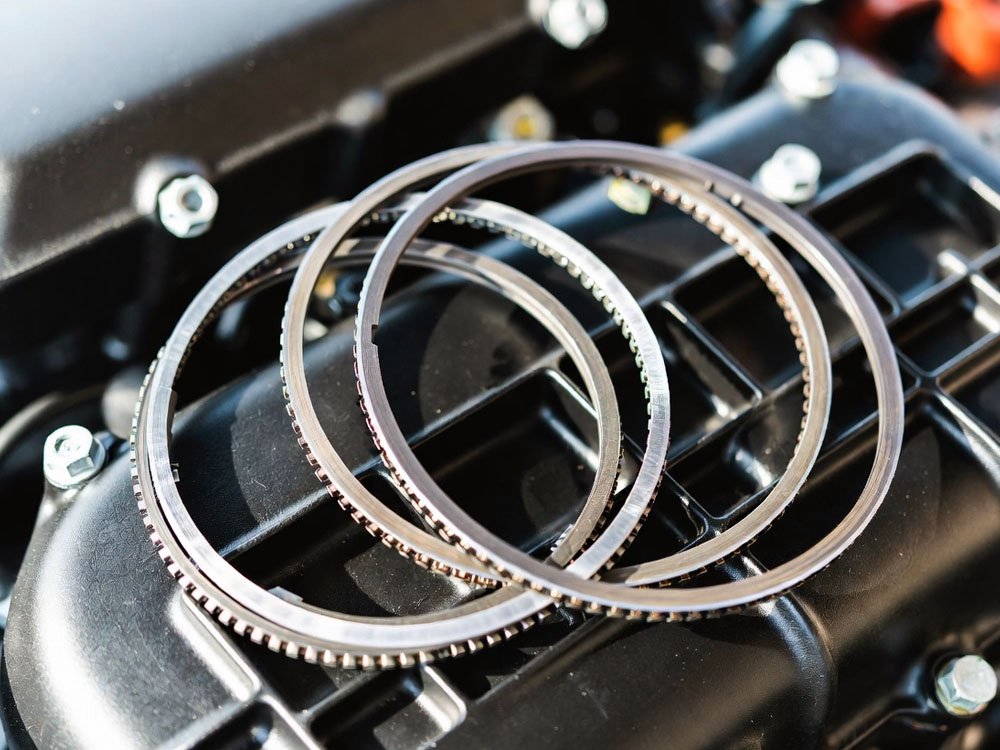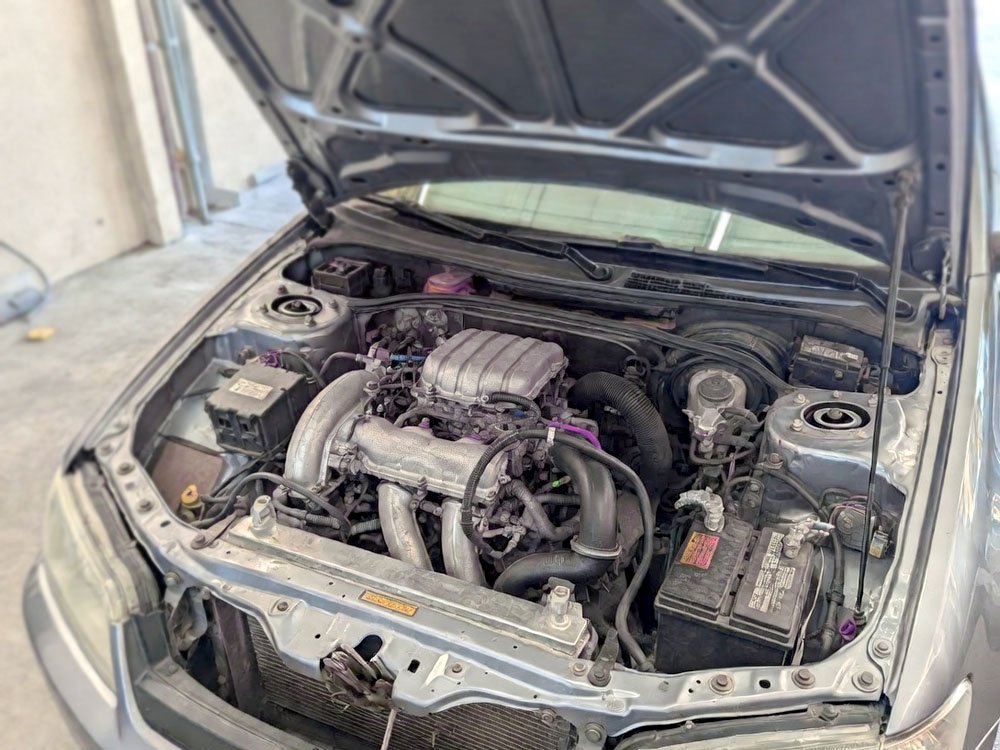To wash a car with hard water, use a water softening solution to prevent water spots. Follow up with a thorough rinse to ensure a spot-free finish.
Washing a car with hard water can be a challenge, as the mineral deposits can leave unsightly water spots on the vehicle’s surface. We’ll discuss the proper way to wash a car with hard water to achieve a clean and shiny result.
By incorporating the right techniques and products, you can effectively remove dirt and grime without leaving behind any water spots. Let’s explore the steps you can take to wash your car with hard water and maintain a flawless finish.

Credit: www.turtlewaxpro.com
Why Hard Water Is A Challenge For Washing Cars
Washing cars with hard water poses challenges due to mineral deposits that leave streaks and spots. The proper way to wash a car in hard water areas involves using a pH-balanced car wash soap and rinsing thoroughly to prevent water spots and maintain a shiny finish.
Effect Of Hard Water On Car Wash
How Hard Water Affects The Car’s Appearance
When it comes to washing your car, hard water can pose a real challenge. Hard water is water that contains high levels of minerals like calcium and magnesium. These minerals can leave unsightly spots and residue on the car’s surface, making it difficult to achieve a clean and shiny finish.
Effect of Hard Water on Car Wash:
- Spots and Streaks: Hard water spots are caused by the minerals in the water drying onto the car’s surface. These spots can be difficult to remove and may leave streaks behind, which can mar the car’s appearance.
- Residue Build-up: The minerals in hard water can also leave behind a stubborn residue on the car’s surface. Over time, this build-up can dull the paintwork and make the car look older and less appealing.
- Lack of Shine: The presence of minerals in hard water can prevent wax and other protective products from bonding effectively with the car’s surface. As a result, the car may lack the desirable shine that is typically achieved after a thorough wash.
How Hard Water Affects the Car’s Appearance:
Hard water can have a detrimental effect on the appearance of your car. The mineral deposits left behind by hard water can create an unattractive, hazy film on the surface, making the car look dull and less vibrant. Additionally, the spots and streaks caused by hard water can be particularly noticeable on dark-colored cars.
Washing a car with hard water can be a frustrating and time-consuming task. The minerals in hard water can leave behind spots, streaks, and a dull residue, making it difficult to achieve a clean and shiny finish. In the next section, we will explore the proper way to wash a car with hard water and overcome these challenges.
Understanding The Composition Of Hard Water
Hard water contains high mineral content that can leave residues on car surfaces, making it challenging to wash. To properly wash a car with hard water, use a water softener or a spotless rinse to prevent mineral buildup. Additionally, consider using a pH-neutral car wash soap to effectively clean your vehicle without leaving streaks or spots.
Understanding the Composition of Hard WaterWhen dealing with hard water, it is essential to comprehend its composition to properly tackle the challenges it presents during car washing. Hard water contains a high mineral content, primarily calcium and magnesium ions, which have a substantial impact on its efficacy for cleaning. With this in mind, it is crucial to be well-informed about the minerals present in hard water and the effects it has on soap and detergents.“`htmlMinerals Present In Hard Water
“`Hard water typically contains an abundance of minerals, including calcium, magnesium, and other trace elements. These minerals can leave residues on the surface of the car, affecting the clarity of the finish and making it challenging to achieve a clean, spot-free shine. Importantly, understanding the specific mineral composition of the hard water in your area is crucial for determining the most effective cleaning strategies.“`htmlEffects Of Hard Water On Soap And Detergents
“`Hard water significantly diminishes the effectiveness of soap and detergents due to the minerals present. The calcium and magnesium ions in hard water form insoluble salts with soap, resulting in soap scum and reduced lathering ability. This can lead to ineffective cleaning and leave a film on the car’s surface, impeding the achievement of a spotless, polished look. Thus, it necessitates specific techniques and products to mitigate the adverse effects of hard water when washing a car.Materials And Tools Needed For Washing A Car With Hard Water
When it comes to washing a car with hard water, it is crucial to gather the right materials and tools to ensure a clean and spot-free finish.
Choosing The Right Soap Or Detergent
- Use specialized car wash soap designed for hard water to prevent water spots.
- Avoid dish soaps or household cleaners that can strip wax and damage the car paint.
- Opt for phosphate-free formulas that are gentle on the environment while being tough on grime.
Specialized Tools For Hard Water Washing
- Invest in a high-quality microfiber wash mitt to gently scrub the car’s surface without scratching.
- Use a separate bucket with a grit guard to prevent dirt and debris from being transferred back onto the car.
- Consider using a water softening filter on your hose to minimize hard water deposits.

Credit: bigsmobile.com
Preparation Before Washing A Car With Hard Water
Before washing a car with hard water, it is crucial to take the necessary steps for proper preparation. This includes using a water softening agent, pre-washing the vehicle, and using a high-quality car shampoo to prevent mineral deposits and ensure a sparkling clean finish.
Finding An Adequate Water Source
Look for a designated area with fresh water supply to prevent hard water streaks on the car’s surface.
Prepping The Car’s Exterior
Begin by parking the car in a shaded area to avoid water spots caused by rapid drying in the sun.
Carefully inspect the car’s surface for any stubborn dirt or debris that may require extra attention.
Techniques For Washing A Car With Hard Water
Techniques for Washing a Car with Hard Water
Rinsing The Car Thoroughly
Before beginning the washing process, it’s crucial to rinse the car thoroughly to remove any loose dirt and debris. Use a high-pressure hose to blast away the initial layer of grime. Be sure to pay close attention to the areas around the wheel wells and under the bumpers, as these tend to accumulate a significant amount of dirt and grime.
Using A Two-bucket Wash Method
When dealing with hard water, the two-bucket wash method becomes even more crucial. This method involves using two separate buckets: one for clean, soapy water and the other for rinsing out the wash mitt. Fill one bucket with soapy water and the other with clean water. After washing each section of the car, rinse the wash mitt in the clean water bucket to remove any dirt or debris. This prevents the wash mitt from becoming saturated with hard water and potentially causing water spots on the car’s surface.
Tips For Effective Car Washing With Hard Water
Discover the proper way to wash a car with hard water with these helpful tips. Learn how to minimize mineral deposits and achieve a spotless finish using effective techniques and products.
Washing your car regularly is important to maintain its appearance and protect its paintwork. However, if you live in an area with hard water, you may face challenges in achieving a spotless and streak-free finish. Hard water contains high levels of minerals like calcium and magnesium, which can leave residues and water spots on your car’s surface. To help you overcome this issue, here are some tips for effective car washing with hard water.
Preventing Spots And Streaks
Hard water spots and streaks can be frustrating to deal with, but there are measures you can take to prevent them from forming on your car. Here are some ways to keep your car spot-free:
- Use a water softener: Install a water softener system in your home to minimize the mineral content in the water you use for washing your car.
- Soap up: Choose a high-quality car wash soap that is specifically formulated to work well with hard water. These soaps often contain ingredients that help to neutralize the minerals and prevent spotting.
- Work in shaded areas: Washing your car in direct sunlight can cause water to dry too quickly and leave behind spots and streaks. Instead, find a shaded spot or wait for a cloudy day to wash your car.
- Work in sections: To prevent water from drying before you can rinse it off, wash your car in small sections. This will ensure that you can thoroughly rinse each section before moving on to the next.
- Dry with a microfiber cloth: After washing your car, use a microfiber cloth to dry it thoroughly. This will help to remove any remaining water droplets and minimize the chances of spotting.
Minimizing Mineral Buildup On The Car’s Surface
In addition to preventing spots and streaks, it is important to minimize mineral buildup on your car’s surface when washing with hard water. Here are some tips to help you do that:
- Rinse thoroughly: Ensure that you rinse your car thoroughly after every wash to remove any lingering soap residue and minerals.
- Apply a wax or sealant: Regularly applying a wax or sealant to your car will create a protective barrier against minerals, making it easier to remove them during future washes.
- Use a water filter: Consider investing in a water filter attachment for your hose or an inline filter for your wash bucket. These filters can help to remove some of the minerals present in the water, reducing the potential for buildup on your car.
- Regularly maintain your car’s paintwork: Keep your car’s paintwork in top condition by using products like clay bars or polish to remove any mineral or water spots that may have accumulated.
By following these tips, you can effectively wash your car with hard water and achieve a clean and spotless finish. Remember to take the necessary precautions to prevent spots and streaks, as well as minimize mineral buildup on your car’s surface. With the right techniques and products, you can keep your car looking its best despite washing with hard water.
Additional Steps For Hard Water Car Wash
To ensure a thorough car wash in hard water areas, consider adding a final polish and wax to prevent mineral deposits. Concentrate on drying the car thoroughly to prevent water spots, and use a water softening product or filtered water for a spot-free finish.
Using A Water Softener
When washing your car with hard water, using a water softener is an effective way to minimize the negative effects of mineral deposits. A water softener works by removing minerals such as calcium and magnesium from the water, preventing them from leaving behind unsightly spots on your car’s surface.
There are various types of water softeners available in the market, including salt-based and salt-free options. Salt-based water softeners use a process called ion exchange to remove minerals from the water. These softeners require the addition of salt periodically to regenerate the resin beads that attract and capture the minerals.
Salt-free water softeners, on the other hand, use alternative methods such as template-assisted crystallization or catalytic media to prevent the minerals from forming scale. While these systems may not remove the minerals completely, they can significantly reduce the negative effects of hard water on your car’s finish.
Rinsing With Distilled Water
In addition to using a water softener, rinsing your car with distilled water is another crucial step in eliminating hard water spots. Distilled water is purified through a process that removes impurities and minerals, making it ideal for preventing mineral deposits on your car’s surface.
To rinse your car with distilled water, follow these simple steps:
- Purchase distilled water from your local grocery store or home improvement center.
- Fill a clean bucket or spray bottle with the distilled water.
- Using a hose or pressure washer, thoroughly rinse off the car to remove any loose dirt or debris.
- Once the car is rinsed, dip a clean microfiber cloth or sponge into the bucket of distilled water and gently wipe down the car’s surface.
- Pay extra attention to areas that are prone to hard water spots, such as windows, mirrors, and chrome accents.
- After wiping down the car, allow it to air dry or use a soft, microfiber towel to dry off any remaining moisture.
By rinsing your car with distilled water, you can ensure that no new mineral deposits are left behind during the drying process, giving your car a spotless finish.
Drying And Finishing Touches
After washing your car with hard water, it’s crucial to pay attention to the drying and finishing touches. Skipping this step could lead to unsightly water spots that can mar the clean finish of your vehicle. Here’s how to ensure your car looks spotless after a wash.
Choosing The Right Drying Technique
After washing your car with hard water, consider choosing the right drying technique to prevent water spots and ensure a pristine finish.
- Use a microfiber drying cloth to gently pat the car’s surface, absorbing any remaining water.
- Alternatively, a high-quality squeegee can be used to remove excess water efficiently.
- Ensure the car is dried completely to prevent water spots from forming.
Applying A Protective Wax Or Sealant
To safeguard your car’s finish from hard water deposits, it is essential to apply a protective wax or sealant.
- Choose a wax or sealant specifically designed to repel water and protect the paint.
- Apply the product according to the manufacturer’s instructions, ensuring thorough coverage of all exterior surfaces.
- Buff the car to a brilliant shine, leaving a protective layer that enhances the car’s appearance and resists water spots.
Maintenance Tips For Preserving A Car’s Shine
Regular Cleaning Schedule
Wash car weekly to eliminate hard water buildup, preserving the shine.
Protective Coatings And Polishes
Apply protective coatings to shield car’s surface from hard water stains.

Credit: www.watercare.com
Conclusion
Washing a car with hard water can be a challenge, but with the right technique and products, it is possible to achieve a spotless finish. By following the methods outlined in this post, you can ensure that your car remains clean and free from water spots, preserving its appearance and protecting its paintwork.
So, next time you tackle this task, remember to use distilled or filtered water and a pH-balanced car wash product for a sparkling result.


